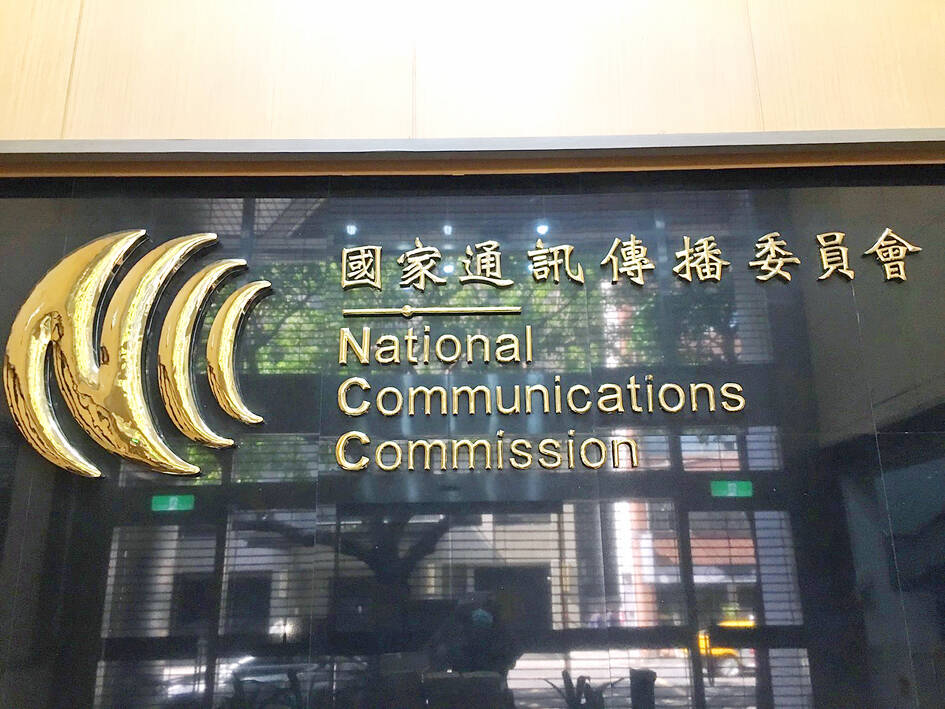Nearly 99 percent of fraudulent telephone calls can be intercepted after the government worked with telecoms to block incoming calls from numbers beginning with +886 0 to +886 8, the National Communications Commission (NCC) said yesterday.
The service was launched in May to curb a rise in scam calls, and since July 17, subscribers of Chunghwa Telecom’s landline services who receive a call from numbers beginning with +886 9 hear a warning in Mandarin and Hoklo (commonly known as Taiwanese) that the call might be a scam.
The NCC last week said that the same warning might be available for mobile phone service subscribers in the middle of this month.

Photo: Yang Mien-chieh, Taipei Times
The number of phone calls beginning with +886 0 to +886 8 has dropped from 1.98 million in May to 745,000 in July, with the interception rate rising from 91.9 percent in May, 98.5 percent in June and 98.65 percent in July, NCC data showed.
The number of phone calls beginning with +886 9 surged from 8.16 million in April to 14.43 million in May, but declined to 14.35 million in June and 10.3 million in July, the data showed.
The success of intercepting calls beginning with +886 0 to +886 8 has helped reduce the number of phone scams reported to the government’s 165 anti-fraud hotline, from 2,346 in April and 1,600 in May, to 914 in June and 823 in July, the commission said.
In phone scams, which are usually international calls rerouted to Taiwan, the caller often pretends they are from a government agency or financial institution, it said.
Intercepting the numbers at the international telephone switch network decreases people’s exposure to scam calls, it said.
Although the number of phone scams reported to the 165 anti-fraud hotline has fallen, and technology to intercept and warn people about scam calls has proven to be effective, the commission said that there is still room to improve the technology.

SHIPS, TRAINS AND AUTOMOBILES: The ministry has announced changes to varied transportation industries taking effect soon, with a number of effects for passengers Beginning next month, the post office is canceling signature upon delivery and written inquiry services for international registered small packets in accordance with the new policy of the Universal Postal Union, the Ministry of Transportation and Communications said yesterday. The new policy does not apply to packets that are to be delivered to China, the ministry said. Senders of international registered small packets would receive a NT$10 rebate on postage if the packets are sent from Jan. 1 to March 31, it added. The ministry said that three other policies are also scheduled to take effect next month. International cruise ship operators

NUMBERS IMBALANCE: More than 4 million Taiwanese have visited China this year, while only about half a million Chinese have visited here Beijing has yet to respond to Taiwan’s requests for negotiation over matters related to the recovery of cross-strait tourism, the Tourism Administration said yesterday. Taiwan’s tourism authority issued the statement after Chinese-language daily the China Times reported yesterday that the government’s policy of banning group tours to China does not stop Taiwanese from visiting the country. As of October, more than 4.2 million had traveled to China this year, exceeding last year. Beijing estimated the number of Taiwanese tourists in China could reach 4.5 million this year. By contrast, only 500,000 Chinese tourists are expected in Taiwan, the report said. The report

Temperatures are forecast to drop steadily as a continental cold air mass moves across Taiwan, with some areas also likely to see heavy rainfall, the Central Weather Administration (CWA) said. From today through early tomorrow, a cold air mass would keep temperatures low across central and northern Taiwan, and the eastern half of Taiwan proper, with isolated brief showers forecast along Keelung’s north coast, Taipei and New Taipei City’s mountainous areas and eastern Taiwan, it said. Lows of 11°C to 15°C are forecast in central and northern Taiwan, Yilan County, and the outlying Kinmen and Lienchiang (Matsu) counties, and 14°C to 17°C

STEERING FAILURE: The first boat of its class is experiencing teething issues as it readies for acceptance by the navy, according to a recent story about rudder failure The Hai Kun (海鯤), the nation’s first locally built submarine, allegedly suffered a total failure of stern hydraulic systems during the second round of sea acceptance trials on June 26, and sailors were forced to manually operate the X-rudder to turn the submarine and return to port, news Web site Mirror Daily reported yesterday. The report said that tugboats following the Hai Kun assisted the submarine in avoiding collisions with other ships due to the X-rudder malfunctioning. At the time of the report, the submarine had completed its trials and was scheduled to begin diving and surfacing tests in shallow areas. The X-rudder,